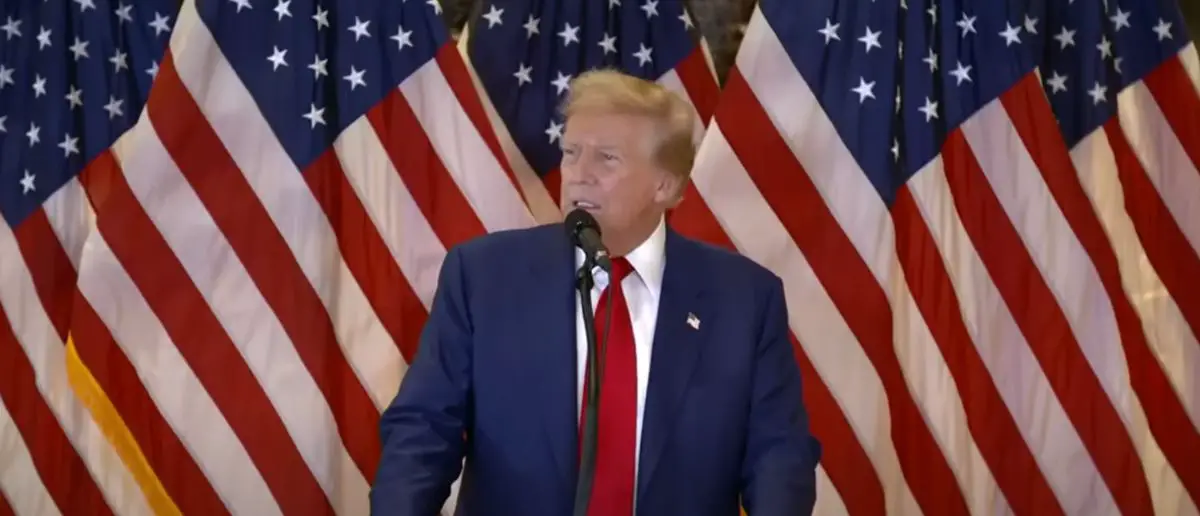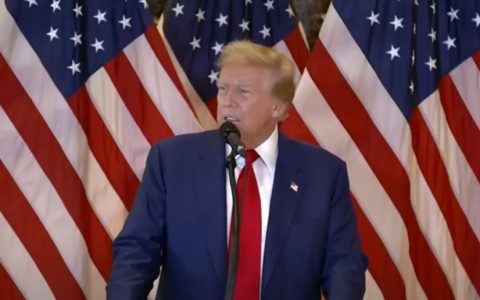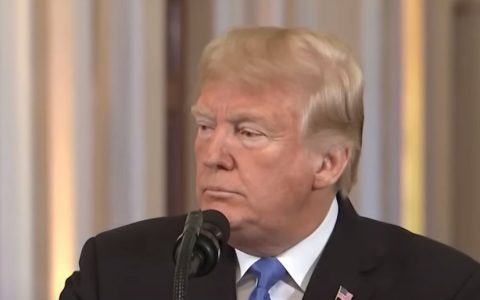
The old order of doing things is over. We are in uncharted waters.
And now Donald Trump gave NATO an ultimatum that has blindsided our allies.
Trump’s Bold Push for NATO to Cut Russian Oil Exposes Europe’s Weak Resolve
President Donald Trump intensified his call for NATO and European nations to halt all energy purchases from Russia, highlighting their failure to fully commit to countering Moscow’s aggression in Ukraine, as he considers his first sanctions since taking office this year. Speaking to reporters on September 14, Trump criticized Europe’s ongoing reliance on Russian oil and gas, particularly by NATO members like Hungary and Slovakia, and demanded stronger sanctions to match U.S. efforts.
His stance, reiterated in a Truth Social post on September 13, points to a strategic move to pressure allies into aligning with America’s goal of crippling Russia’s war funding, while exposing the Democratic Party’s ineffective approach to global security and their tolerance of Europe’s half-measures.
Trump’s Demand for Unified Action
Trump told reporters, “They’re not doing the job. NATO has to get together. Europe has to get together. Europe… they’re my friends, but they’re buying oil from Russia, so we can’t be expected to be the only ones that are, you know, full bore.” He emphasized, “I’m willing to do sanctions, but they’re going to have to toughen up their sanctions commensurate with what I’m doing.”
His comments followed a letter posted on Truth Social, where he stated, “I am ready to do major Sanctions on Russia when all NATO Nations have agreed, and started, to do the same thing, and when all NATO Nations STOP BUYING OIL FROM RUSSIA.” Trump also proposed 50% to 100% tariffs on China to weaken its economic support for Russia, a move he believes could hasten the end of the Ukraine war.
Despite the EU’s ban on maritime Russian oil imports since 2022, nations like Hungary, Slovakia, France, Belgium, and Spain continue to import Russian energy, particularly liquefied natural gas (LNG).
Hungary, a NATO member with ties to Vladimir Putin, leads as Europe’s top importer of Russian crude and pipeline gas, while France’s LNG imports, bound by long-term “take-or-pay” contracts through the 2030s, also flow to third parties like Germany.
The EU imported $5.2 billion in Russian LNG in the first half of 2025, per the EU’s Data Protection Authority, undermining claims of a unified front against Moscow. Trump’s insistence that “they’re not supposed to be buying from Russia,” whether oil or gas, highlights Europe’s inconsistent sanctions, which he argues weaken NATO’s leverage.
Exposing Democratic Inaction
Trump’s push contrasts sharply with the Biden administration’s failure to expand sanctions on Russia, allowing $2.1 billion in U.S. imports of Russian uranium, palladium, and fertilizers in 2025. His call for NATO to act decisively exposes the Democratic Party’s weak foreign policy, which tolerated Europe’s energy dependence on Russia while failing to pressure allies effectively.
Democrats’ inaction, coupled with their focus on domestic political point-scoring, has emboldened Putin, as seen in Russia’s recent drone incursions into Poland and Romania, prompting NATO’s Operation Eastern Sentry. Trump’s strategy shifts the burden onto Europe, demanding they match U.S. resolve rather than relying on American leadership to bear the cost alone.
While Democrats criticize Trump’s approach as divisive, his insistence on unified NATO action and tariffs on China reflects a pragmatic effort to choke Russia’s war machine, which relies heavily on energy revenues.
Hungary and Slovakia, led by Trump-friendly leaders, complicate the push, but Trump’s public pressure aims to force accountability, unlike the Democrats’ passive stance under Biden. His proposal for tariffs on China, which buys significant Russian oil, targets a key Kremlin ally, contrasting with Democratic reluctance to confront Beijing economically.
Strategic Leverage for Peace
Trump’s focus on ending Russian oil purchases and imposing tariffs aligns with his goal of resolving the Ukraine war, which he calls “deadly, but ridiculous.” By conditioning U.S. sanctions on NATO’s compliance, he aims to unify the alliance’s economic pressure on Moscow, a strategy Democrats failed to pursue effectively.
Critics like Senate Minority Leader Chuck Schumer may argue Trump’s demands strain alliances, but his approach prioritizes results over diplomacy for its own sake, exposing Europe’s reliance on Russian energy as a weak link in the fight against Putin’s aggression.
As NATO navigates tensions, including Turkey’s complex role as a Russian oil buyer and Ukraine supporter, Trump’s leadership seeks to force a reckoning, ensuring allies share the burden of confronting Russia.





